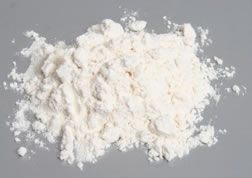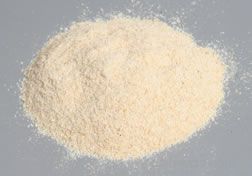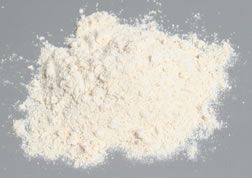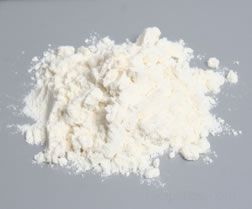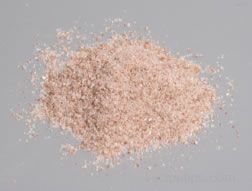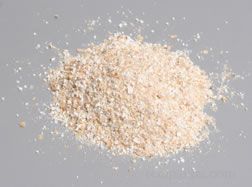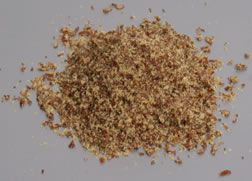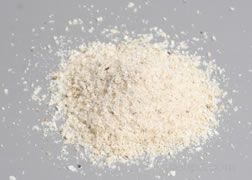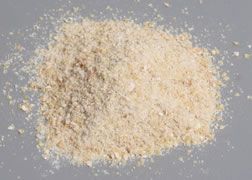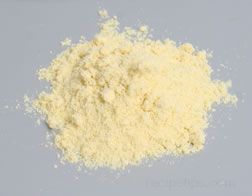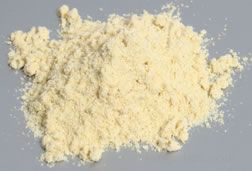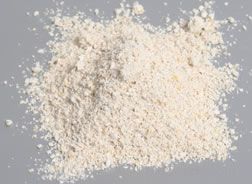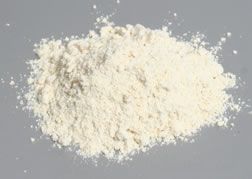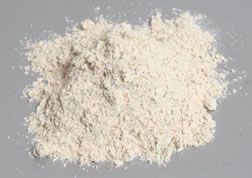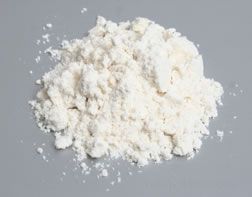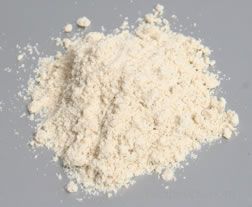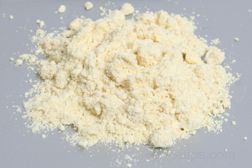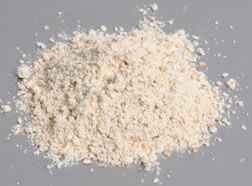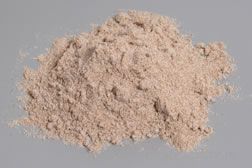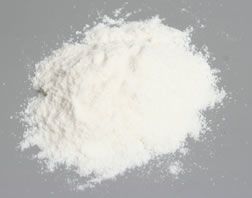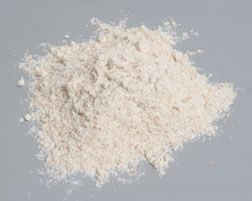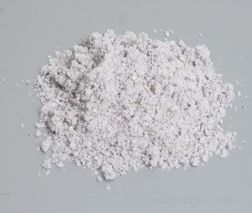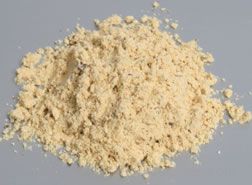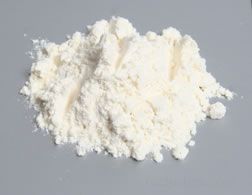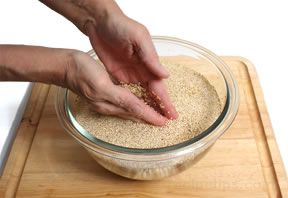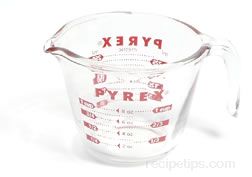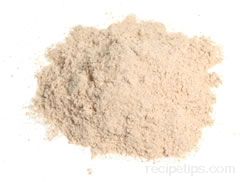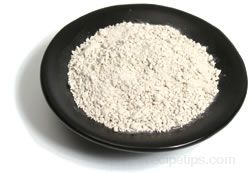|
Most types of flour keep well in a sealed container in a cool, dry, and dark location. The original paper packaging used for many types of flour is fine for long term storage as long as the package has not been opened. Once open, the shelf life decreases. Many types of flour are now marketed in resealable plastic bags that increase shelf life. The refrigerator is a very good storage area for flour, but the use of a sealed container is even more important to prevent the flour from absorbing moisture as well as odors and flavors from other foods stored in the refrigerator. The freezer compartment can be used for long-term storage, but when using a sealed container or a freezer bag, make sure it is full to eliminate as much air as possible. Most types of flour can also be tightly wrapped for freezer storage, but wrapping is often an awkward method for storing large quantities. Wrap the flour tightly in plastic followed by a layer of aluminum foil. Avoid refrigerating or freezing flour in its original paper packaging because paper is porous and the flour may absorb moisture and odors, however if the flour has not been opened, the paper package can be stored in the refrigerator of freezer if the package is tightly wrapped with plastic. Flour milled from whole grains does not keep as long as highly refined flour because the germ portion of the whole grain can cause the flour to become rancid over time. Flour that does not look or smell good should not be used. It is best to buy smaller quantities of flour if you are finding it necessary to continually discard the flour due to spoilage. Shelf Life
|
|
All-purpose Flour
|
Shelf- Life: for cabinet storage, up to 8 months if properly stored in a sealed container or if tightly wrapped, and for refrigerator storage, up to one year. |
|
Amaranth Flour
|
Shelf- Life: up to 6 months in the freezer if properly stored in a sealed container or if tightly wrapped. Other Considerations: will not keep well if it is stored in a warm location or if it is exposed to sunlight. The flavor and aroma of amaranth flour will become bitter if it is stored improperly or for an excessively long period. |
|
Barley Flour
|
Shelf Life: up to 4 months in the freezer in a sealed container or if tightly wrapped. The flour has a short shelf life when stored in a cabinet. |
|
Bread Flour
|
Shelf Life: several months in a cool, dry cabinet when stored in a sealed container or if tightly wrapped, and up to one year in the freezer. |
|
Brown Rice Flour
|
Shelf Life: 4 to 5 months when stored in the refrigerator and up to one year in the freezer when stored in a sealed container or if tightly wrapped. Other Considerations: has a high oil content (because of the bran and germ), which causes it to become rancid if stored improperly or if stored for an excessive length of time. |
|
Buckwheat Flour
|
Shelf Life: up to 2 to 3 months in the refrigerator and for 6 months or longer in the freezer in a sealed container or if tightly wrapped. |
|
Corn Flour
|
Shelf Life: up to one year in a cool, dark cabinet if properly stored in a sealed container or if tightly wrapped. The shelf life increases if the flour is stored in the freezer. |
|
Flaxseed Meal/Flour
|
Shelf Life: 2 or 3 months if properly stored in a cool, dry cabinet in an airtight container that does not permit light to pass through. It will keep 6 months in the freezer. Other Considerations: exposure to light will deteriorate the effectiveness of the omega-3 fatty acids in the flaxseed meal/flour, which are so effective in reducing cholesterol. When shopping for flaxseed meal/flour, look for packages that protect it from exposure to light. |
|
Job's Tears Flour
|
Shelf Life: several months in the refrigerator and 6 months or more in the freezer if properly stored in a sealed container or if tightly wrapped. |
|
Kamut® Flour
|
Shelf Life: up to one year freezer storage if properly stored in a sealed container or if tightly wrapped. Other Considerations: whole-grain Kamut flour usually lasts longer than whole-grain wheat flour because it has a lower moisture content than wheat. |
|
Masa Harina
|
Shelf Life: about one year if properly stored in a sealed container or if tightly wrapped in the freezer. It will keep several months in a cool, dry cabinet. |
|
Millet Flour
|
Shelf Life: millet flour will keep for about 2 months in the refrigerator and 6 months or longer in the freezer. The flour should be tightly wrapped for refrigerator or freezer storage. A completely filled and sealed glass jar also works well for refrigerator storage. Other Considerations: can become rancid quite rapidly if it is not properly stored. It is usually best to grind millet as needed to ensure the best flavor. |
|
Oat Four
|
Shelf Life: up to 3 months cabinet storage if stored in sealed containers or if tightly wrapped and up to 6 months if stored in the freezer. |
|
Quinoa Flour
|
Shelf Life: 4 to 6 months in the freezer if stored in sealed containers or if tightly wrapped. |
|
Rye Flour
|
Shelf Life: whole-grain rye flour should be stored in the refrigerator, tightly wrapped or in an airtight container, where it will keep for several months. It will keep in the freezer for up to a half-year. Other Considerations: If stored properly, rye flour with the germ removed will keep for longer periods than whole-grain rye flour. |
|
Self-Rising Flour
|
Shelf- Life: for cabinet storage, 4 to 6 months if properly stored in a sealed container or if tightly wrapped, and for refrigerator storage, up to one year if sealed properly. |
|
Sorghum Flour
|
Shelf Life: 4 months freezer storage if properly stored in sealed containers or if tightly wrapped. |
|
Soy Flour
|
Shelf Life: 5 to 7 months if properly stored, tightly wrapped or tightly sealed plastic or glass containers. The refrigerator or freezer are the best locations for storage. Other Considerations: full-fat versions of soy flour do not keep as long as the fat-free versions. |
|
Spelt Flour
|
Shelf Life: if stored in sealed containers or if tightly wrapped, spelt flour will keep for several months in a cool, dry cabinet and 6 to 12 months in the freezer. |
|
Teff Flour
|
Shelf Life: when stored in tightly sealed containers or if tightly wrapped, teff flour will keep for 4 months in the freezer. |
|
White Rice Flour
|
Shelf Life: when properly stored, in a tightly covered container in a cool dry location, white rice flour may last indefinitely. |
|
Whole-Wheat Flour
|
Shelf Life: 6 months to one year in the freezer if stored in tightly sealed plastic containers or if tightly wrapped. It will keep for only a few months if stored in a cabinet. Other Considerations: a drawback with whole-wheat flour, regardless of the milling process, is that its shelf life is shorter than highly processed white flour varieties due to the presence of the wheat germ, resulting in an unsaturated oil content that is higher than refined flour. The potential for rancidity is greater if whole-wheat flour is kept for long periods and particularly if it is not stored under refrigerated conditions. It is best to store whole-wheat flour in a tightly sealed container in the refrigerator or freezer. |

